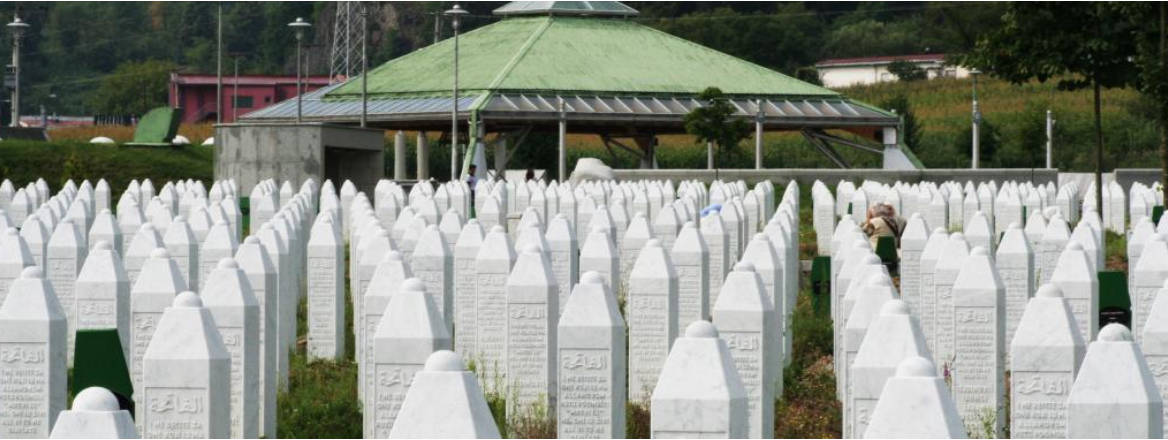The Enduring Lessons of Peacemaking and Peacekeeping in the former Yugoslavia
It is almost a quarter of a century since the international community intervened to stop the carnage in the former Yugoslavia. The war crime tribunals are now over, but the painful lessons of that conflict endure.
It is seven decades since the end of the Holocaust when the world declared ‘Never Again’. However, events in 2017, from Syria to Myanmar to Yemen, have put the spotlight on the international community’s limitations in deterring mass atrocities.
The November conviction of the Bosnian Serb former commander Ratko Mladic and others of genocide by the recently concluded International Criminal Tribunal for the former Yugoslavia (ICTY) provided some closure to an exceptional instance in which the international community did achieve enough consensus to actively respond.
It was this that made possible the deployment of the UN Protection Force (UNPROFOR) in the former Yugoslavia, which was nonetheless unsuccessful as noted by the UN itself.
The international community’s indecision on the former Yugoslavia was also suggested by the wide gap between the robust language of the UN mission’s mandate and its inadequate means
For example, the systematic killing of around 8,000 Bosnians Muslims, for which Mladic was convicted, took place after the deployment of UNPROFOR and around a UN protected safe zone at Srebrenica.
The underlying ambiguity of the international community towards UNPROFOR’s mission, rather than a flawed mandate, was at the core of this failure. Although UNPROFOR’s increasing authority to use robust force was counter-balanced by contradictory reference to it to be used only in self-defence, the notion of defence of the mandate is a broad one in UN peacekeeping.
The mission’s flaws and deficiencies were therefore largely not reflective of the mandate’s attributes. The problems of the mission reflected other foundational underpinnings – such as significant and unresolved ambiguity in the international community’s approach in the then ongoing disintegration of the former Socialist Federal Republic of Yugoslavia.
The international community’s indecision was also suggested by the wide gap between the robust language of the mission’s mandate and its inadequate means, wavering international support or perplexing guidance by different parts of the UN or troop contributing countries’ governments.
Other weaknesses included the inadequacy of UN peacekeeping doctrine for deployment into a conflict rather than a post-conflict setting or a cumbersome command structure more suited to a traditional peacekeeping mission than to a quasi-enforcement operation facing a well-equipped, trained and ruthless party pursuing a campaign of ethnical cleansing.
Caught in the gulf between a robust mandate and hopelessly insufficient means, only the gruesome events at Srebrenica finally reinforced the advocates of forceful action
In addition, it appears that the UN itself did much harm in the years prior to the Srebrenica massacre. The arms embargo the UN imposed left the new nation of Bosnia-Herzegovina defenceless to forces committed to its destruction and willing to attempt genocide. The UN then deployed a lightly armed peacekeeping force into circumstances for which it was not suited or prepared.
UNPROFOR’s deployment in the absence of any kind of peace, international consensus in its support and unaware of the violence intended at Srebrenica meant it was likely to fail, notwithstanding the robust rhetoric of its mandate.
Caught in the gulf between a robust mandate and hopelessly insufficient means, only the gruesome events at Srebrenica finally reinforced the advocates of forceful action and made the troop contributing countries willing to entertain higher risks to their forces and embarrassed supporters of the Bosnian Serbs sufficiently to prevent UN Security Council action being obstructed.
With Mladic’s conviction 24 years after the establishment of the ICTY what, if any, are the lessons for the international community today? An arms embargo and a UN peacekeeping mission left Bosnians largely defenceless and NATO bombing belatedly served to end genocidal intent.
Peacekeeping operations cannot replace political consensus; cannot succeed where there is no peace to keep; and cannot succeed without support and resources
Today, few would confidently claim that in states such as Libya or Yemen external supplies of arms and aerial bombing have not contributed to chaos and anarchy. Consensus still consistently eludes the international community on these matters while the horror of Bosnia pales next to today’s outrages from Myanmar to Syria.
With problems apparent but solutions much less so, the lessons from the Yugoslav wars can barely be described as lessons: peacekeeping operations cannot replace political consensus; cannot succeed where there is no peace to keep; and cannot succeed without the necessary support and resources, regardless of the rhetoric of their mandate.
The utility of the lessons is further limited, because they are only symptomatic of the underlying discord in the international community for which there is no easy solution. This was the key reason for UNPROFOR’s inability to more effectively counter the forces behind at work in the former Yugoslavia. The underlying discord, which remains, also means that the consensus of a few brief years in the 1990s will not be easily regained.
Established in 1993, the ICTY did however pioneer aspects of international law that had remained inactive since the post-war Nuremberg and Tokyo tribunals. The ICTY advanced the concept of joint criminal enterprise to tie political leaders to violent campaigns they had planned from afar, ruled that systematic rape could be treated as a war crime and brought terms such as ethnic cleansing into common use.
The success of the ICTY’s work has therefore been a rare gift to those yearning for the half-forgotten post-war aspiration for the world’s despots to no longer be able to commit crimes against humanity with impunity.
Alexander Balas is a former investment manager at Invest Australia, who is currently working towards a postgraduate degree at the Australian National University.
The views expressed in this Commentary are the author’s, and do not necessarily reflect those of RUSI or any other institution.

